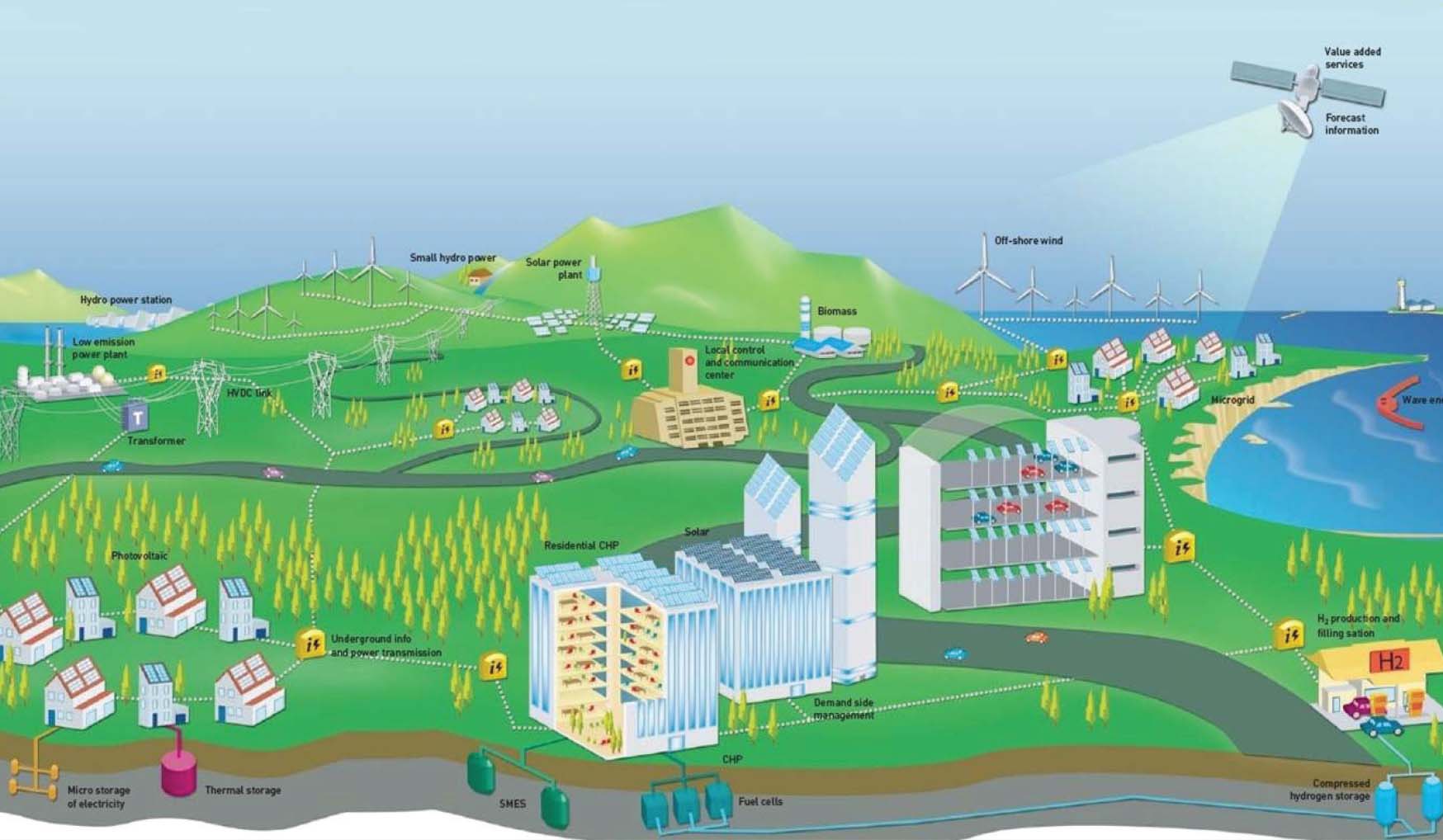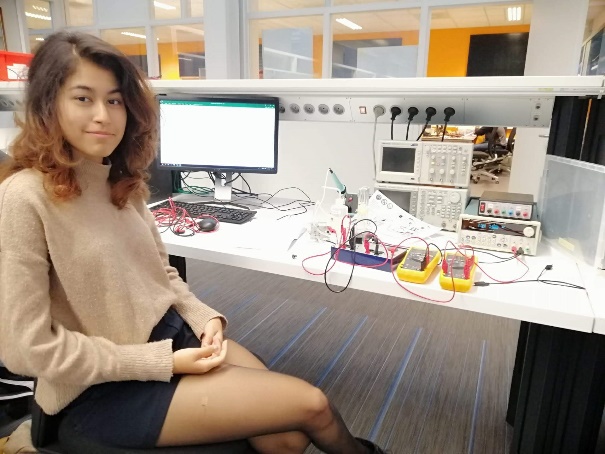Electrical Sustainable Energy Systems
ET-Mi-190
Electrical power systems worldwide are undergoing a major transformation as a consequence of the transition towards the widespread use of clean and sustainable energy sources. Basically, this involves massive technological upgrades in the generation fleet, the transmission network, and the distribution systems. This change constitutes a huge engineering challenge and demands for education of highly skilled and motivated young engineers to implement new policies and methods for intelligent system operation and planning.
The Electrical Sustainable Energy Systems (ESES) minor presents the students with a comprehensive insight into the fundamental aspects related to electrical power generation from renewable energy sources, the principles of electric power conversion and storage, energy efficiency, reliability, cyber-security, and intelligent grid management. To this aim, the minor offers a set of theoretical and project based courses that allow the students to learn from the scratch, exercise, and apply the acquired knowledge in near-real-world problems, as well as to develop practical skills in a multidisciplinary context.

Faculty of Electrical Engineering, Mathematics and Computer Science
ECs: 30
Language: English
Maximum participants: 50
| Non-selection minor: | |
| Selection minor: | |
| Criteria: According to the policy of Minors of TU Delft | |
For whom?
Students who have successfully completed the second year of a BSc programme at TU Delft or equivalent level at other universities. The students must have background in calculus, linear algebra, elementary physics, and elementary chemistry.
What do you learn?
After completing ESES Minor, the students acquire good insight into the basic principles of the components and the operation of an interconnected electrical sustainable power system. This is relevant for students interested in pursuing a master programme related to this area. Please note that attending and completing ESES Minor does not entail a guarantee an admission in master programmes such Electrical Engineering, Sustainable Energy Technology and the European Wind Energy Master.
Learning objectives
- Provide simple physical tools to estimate the potential of renewable energy sources in reference to electric power supply.
- Analysis of the performance of systems for transmission, distribution, and storage of electrical energy.
- Design on paper of a renewable system powered by solar and wind energy.
- Design of smart grid solutions for sustainability problems.
Course overview
-
This course teaches the fundamentals and analyses’ tools for the study of electrical sustainable power systems. The physical laws of electric circuits, the working principles of AC and DC technologies (e.g., electric machines, power electronics), and the evaluation of local (i.e., device level) and system wide performance (i.e., large scale interconnected systems) are covered and exercised.
-
This course will enable you to familiarize yourself with the modeling, operation, and planning of sustainable electrical distribution networks (medium and low voltage level) ranging from components (i.e., cables, transformers, load modeling) to a system perspective (i.e., three-phase power flow) in the context of the energy transition (operation with large numbers of PV systems, electrical vehicles, electric heat pumps).
-
This course aims to assess and improve the cyber security of smart grids. It analyses the typical Information Technology (IT) – Operational Technologies (OT) system architectures for grid monitoring and control and explains the main cyber security concepts. The course provides essential knowledge to analyse cyber security threats, threat vectors, and vulnerabilities of IT – OT systems for power grids. It examines the kill chain stages of the cyber-attack process on industrial control systems. The course studies the state-of-the-art security controls and best practices to defend against cyber-attacks and effectively mitigate their impact on power system operation.
-
This course introduces the technology that converts solar energy into electricity, heat and solar fuels with a main focus on electricity generation. Photovoltaic (PV) devices are presented as advanced semiconductor devices that deliver electricity directly from sunlight. The emphasis is on understanding the working principle of a solar cell, fabrication of solar cells, PV module construction and the design of a PV system.
-
In this engineering course, you will learn how to assess the potential for energy reduction and the potential of renewable energy sources like wind, solar and biomass. You'll learn how to integrate these sources in an energy system, like an electricity network. In addition, energy balances and energy policies will be discussed.
-
A multidisciplinary team, you will design the renewable energy based supply system, storage, and intelligent operation of a micro-grid.
-
In this practical course you will learn how PV modules and fuel cells work, how the power output from PV modules can be maximized and how solar electricity can drive water splitting.
-
In this course, you will learn about the key disciplines and steps involved when developing offshore wind farms, from choosing the wind turbine to estimating the power produced, calculating costs and planning deployment. You will also learn about new emerging concepts in the field.
-
The course teaches analysing and improving the energy efficiency of processes and infrastructure. Tools such as benchmarking or auditing are exercised.
-
Assessment of the impact of different types of uncertainties (e.g. wind speed, failure rates) on the security of supply based on different methods belonging to the intriguing world of probability theory.
-
The focus is on balancing supply and demand in future smart energy systems, with respect to uncertain renewable energy sources and supply-driven demand. This is handled by means of ICT and market approaches. Important topics are power system economics, multi-agent systems, and ICT techniques, especially with respect to automated allocation and market mechanisms for energy systems.
Tracks
| For students of BSc Electrical engineering | |||
| Compulsory courses | ECTS | Q | |
| EE3065TU | Reliability of Sustainable Power Systems | 3 | 1 |
| ET3037TU | Project Integrating Renewable Energy | 6 | 1 |
| AE3516A | Fundamentals of Wind Energy | 3 | 1 |
| EE3400TU | Sustainable Electrical Distribution Networks | 3 | 2 |
| ET3034TU | Solar Energy | 3 | 2 |
| ET3036TU | Project Design of Sustainable Energy Supply | 6 | 2 |
| Electives (select 6 ECTS) | ECTS | Q | |
| EE3105TU | Sustainable Energy Technologies | 3 | 1 |
| EE3060TU | Agent-based energy markets | 3 | 2 |
| EE3110TU | Energy Efficiency | 3 | 2 |
| EE3390TU | Introduction to Cyber Security for Power Grids | 3 | 2 |
Track for students of other BSc programs | |||
| Compulsory courses | ECTS | Q | |
| EE3395TU | Introduction to Electrical Power Engineering | 6 | 1 |
| ET3037TU | Project Integrating Renewable Energy | 6 | 1 |
| EE3400TU | Sustainable Electrical Distribution Networks | 3 | 2 |
| ET3034TU | Solar Energy | 3 | 2 |
| ET3036TU | Project Design of sustainable energy supply | 6 | 2 |
| Electives (select 6 ECTS) | ECTS | Q | |
| EE3065TU | Reliability of Sustainable Power Systems | 3 | 1 |
| AE3516A | Fundamentals of Wind Energy I | 3 | 1 |
| EE3105TU | Sustainable Energy Technologies | 3 | 1 |
| EE3060TU | Agent-based energy markets | 3 | 2 |
| EE3110TU | Energy Efficiency | 3 | 2 |
| EE3390TU | Introduction to Cyber Security for Power Grids | 3 | 2 |
Education methods
The lectures (theory and practical) entail 18 ECTs, and the projects entail 12 ECTs. Check the detailed overview of learning activties and study load at https://www.studyguide.tudelft.nl/
Register for this minor
To register, please follow the procedure described at Minors - English page, or Minors- Dutch page.
Participating institutions








